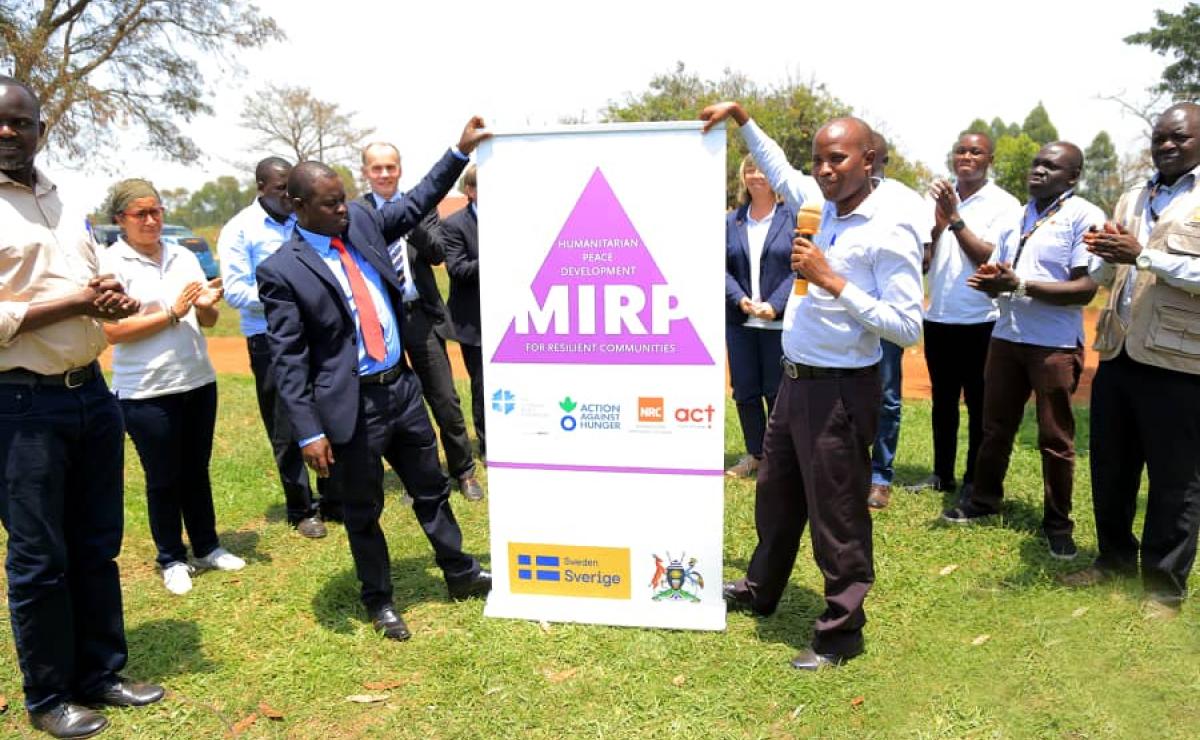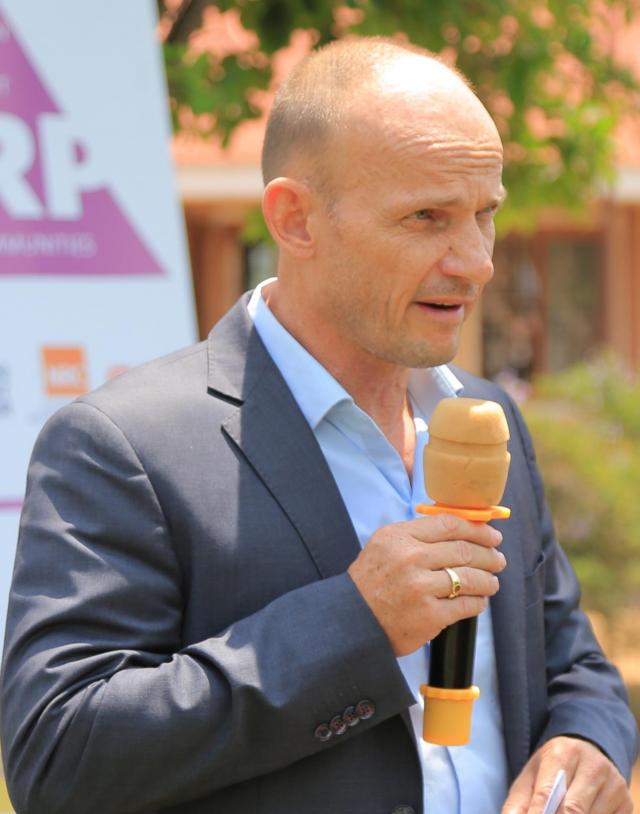MIRP project continues support to the population despite Covid-19 outbreak

Despite the Covid-19 outbreak in Uganda and the very challenging conditions of implementation, the partners of the the Mutual and Inter-related Resilience Program (MIRP), led by Act Church of Sweden, Action Against Hunger, Lutheran World Federation and Norwegian Refugee Council have remained active in implementing the project, with relevant adjustments to ensure safety of beneficiaries and staff. The activities were authorised by the government of Uganda to continue despite the lock-down that started in March.
Claire Mazin, the MIRP consortium Manager, said the project remains very relevant in times of emergency like the Covid-19, because it is looking at in depth analysis of the context and the vulnerabilities, through a baseline study supported by additional studies on gender, conflict management and environment.
"The MIRP project activities address both the immediate and the longer-term needs of the population in time of crisis and set the base for a quicker recovery: livelihood, water and sanitation, education," said Mazin.
For example, hand washing and sanitation (WASH) are important aspects in the prevention of COVID-19, while this crisis highlights the importance of environmental-friendly and gender sensitive interventions from the onset, key areas of the MIRP project.
MIRP is also a unique opportunity, for the coming 4 years to link humanitarian and development actors to better respond to the co-variate shocks from the covid-19 pandemic for both refugees and host communities.
According to Jesse Kamstra, the representative of LWF in Uganda, " Now is not the time to pull back but to double up our efforts, in particular with Hygiene, Sanitation and Water efforts to support the refugees and host communities through these very challenging times, in a safely manner. "

Some example of on-going activities is: door-to-door sensitisation on hygiene and sanitation practices as well as key messaging on the corona virus (how it is spread, Signs, Symptoms and Prevention) through the VHTs, equipped with masks, gloves and hand sanitisers.
In March, two Private Nursery bed operators (PNO) were identified, one from Mahamba village in Kyangwali Sub county and one from Igwanjura village in Kabwoya sub county and these will be supported with seedling production equipment in order for them to produce seedlings for beneficiaries.
The partners of the MIRP are also currently focusing on the assessment for construction of schools, training centres and latrines and the identification of the local partner for the financial inclusion component.

